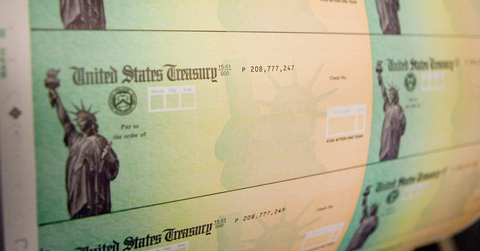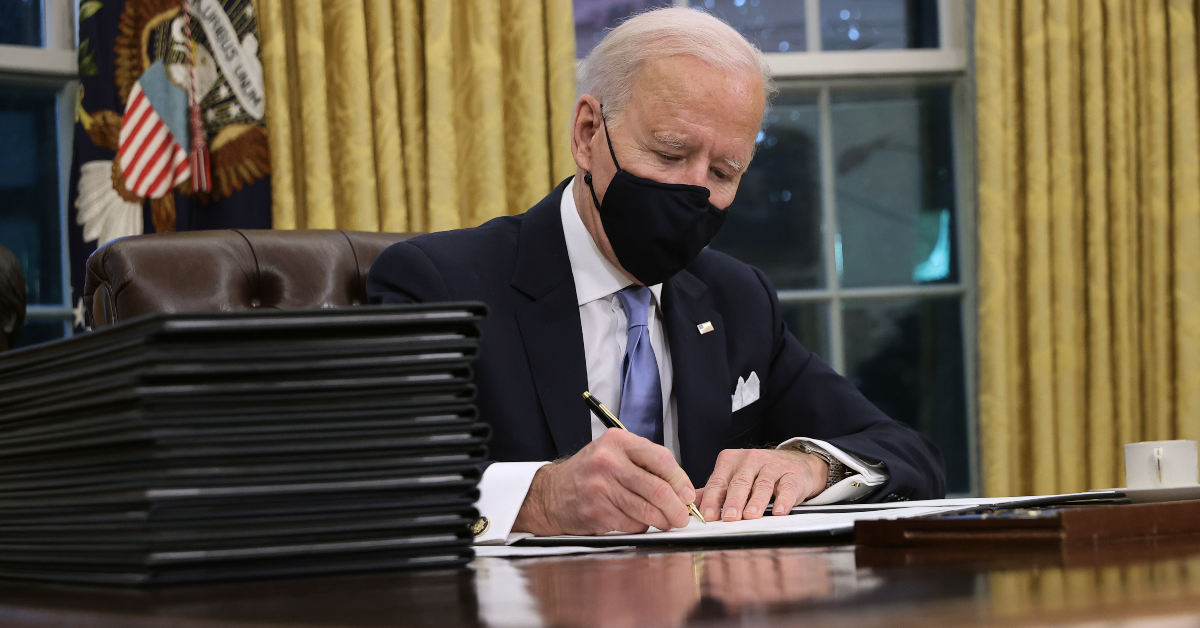If You Get Two Stimulus Checks, Here's What You Should Do
If you received an extra stimulus check, the IRS will most likely want its money back.
April 14 2021, Published 11:18 a.m. ET

Think you hit the jackpot because the Internal Revenue Service (IRS) sent you two stimulus checks in this recent round of payments?
Think again.
If you received an extra stimulus check or if you received one in error, don’t go out and spend the additional money on a big-screen television or new computer. The IRS will most likely want its money back.

Qualifying U.S. residents received up to $3,200 in three stimulus payments
Since March 2020, the U.S. government has issued three different stimulus payouts as a way to quell the economic uncertainty and job loss caused by the COVID-19 pandemic. In the first round of stimulus checks, U.S. residents received $1,200 through the CARES (Coronavirus Aid, Relief, and Economic Security) Act. A second stimulus check for $600 was approved and sent out in December 2020.
The third stimulus payout of $1,400 for every qualified adult was part of President Joe Biden’s $1.9 trillion economic relief American Rescue Plan.

Earlier this month, the IRS sent out a fourth batch of $1,400 Economic Impact Payments from the American Rescue Plan to those who had not yet received one. According to an IRS statement, the total disbursed so far is more than 156 million payments, with a total value of approximately $372 billion.
A number of people have reported that they received a second stimulus payout during the recent disbursement. Others have reported receiving stimulus checks that were meant for deceased relatives.
How to return a stimulus overpayment:
If you received a second $1,400 stimulus check, there are several ways for you to send it back to the IRS, depending on if you got the payment via a paper check, direct deposit, or added to your IRS-issued debit card.
To return a paper check, the IRS says to:
- Write "Void" in the endorsement section on the back of the check.
- Mail the voided Treasury check immediately to the appropriate IRS location.
- Don't staple, bend, or paper clip the check.
- Include a brief explanation stating the reason for returning the check.
When sending back a paper check, the IRS address you send the check to will differ depending on where you live. The IRS website has information on where you should return the paper check.
If you have cashed the paper check, or if the payment was a direct deposit, the IRS instructs you to:
- Submit a personal check, money order, etc., immediately to the appropriate IRS location.
- Write on the check/money order made payable to “U.S. Treasury” and write 2020EIP and the taxpayer identification number (social security number, or individual taxpayer identification number) of the check recipient.
- Include a brief explanation of the reason for returning the EIP.
Some people received their stimulus payment on an IRS-issued debit card. If you were overpaid on the debit card, you should send the card along with a brief explanation stating you don’t want the payment and do not want the amount re-issued to Money Network Cardholder Services, 2900 Westside Parkway, Alpharetta, GA 30004
